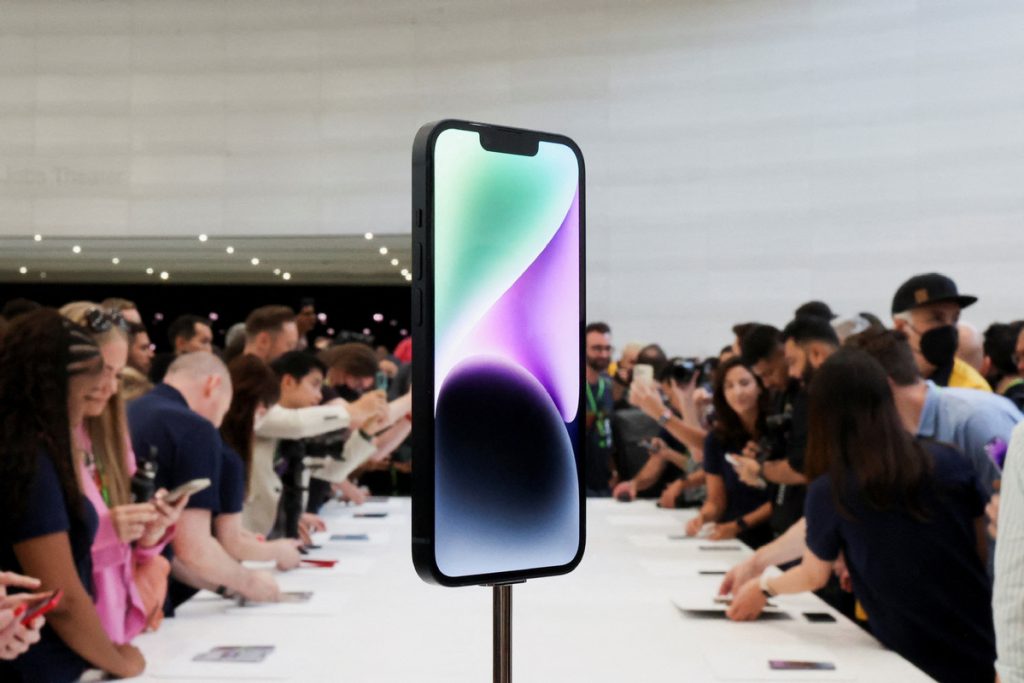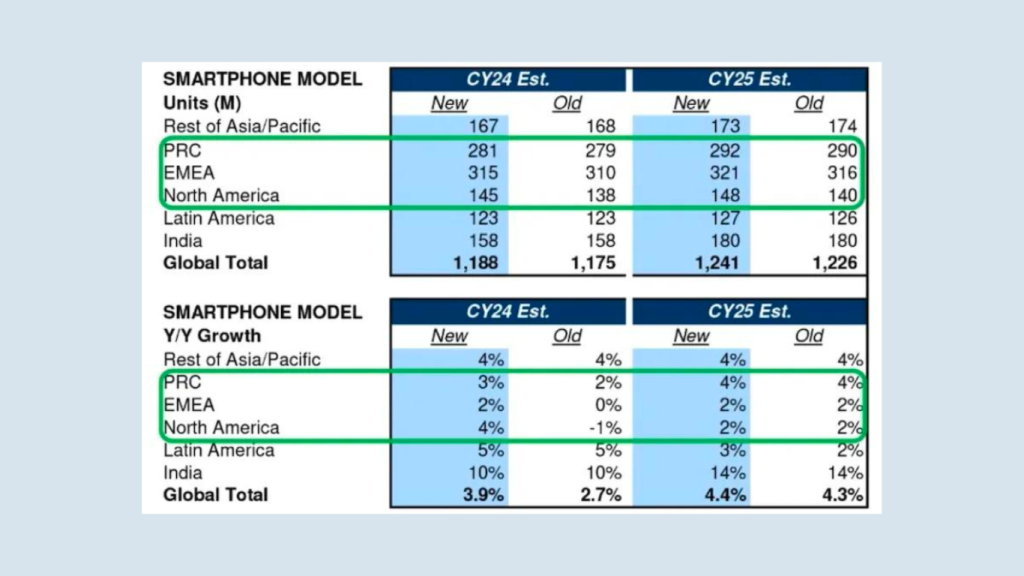
Buy & Download
Download immediately after your purchase
QUESTIONs? Help With The Setup
support@msofficestore.uk
Live Chat

- Windows For Personal Use

- Office For Windows

- Antivirus
Download immediately after your purchase
support@msofficestore.uk




Smartphones have become an indispensable part of our lives, keeping us connected, informed, and entertained. However, the mobile sector has recently experienced a slump, causing concerns among tech enthusiasts. But here’s some exciting news: leading financial institutions, Goldman Sachs and Morgan Stanley, project a remarkable comeback for smartphone sales starting in 2024.
Morgan Stanley’s report predicts a rebound of nearly 4% in global smartphone shipments in 2024, followed by a 4.4% increase in 2025. The driving force behind this resurgence? Advancements in Artificial Intelligence (AI) capabilities embedded in smartphones. In this blog post, we will explore how AI is set to revolutionize the smartphone industry, unlocking fresh demand and offering innovative features. Understanding the impact of AI on smartphones is crucial. So, let’s dive into the world of AI-powered smartphones and discover the exciting possibilities that lie ahead.
Smartphone sales are poised for a resurgence from 2024 onward, challenging prevailing concerns of an extended downturn in the mobile sector, as outlined in separate forecasts by Goldman Sachs and Morgan Stanley. Morgan Stanley’s report anticipates a nearly 4% rebound in global smartphone shipments in 2024, followed by a 4.4% increase in 2025, dismissing parallels with the PC industry’s prolonged declines.
Morgan Stanley attributes the rejuvenation of smartphone sales to innovative on-device AI capabilities, unlocking fresh demand. The investment bank revised its 2025 global phone volume projections upward, citing the substantial potential of edge AI. This technology is expected to drive advancements, ranging from improved photography to speech recognition, all while safeguarding user privacy.
Smartphone giants, including Apple, Vivo, Xiaomi, and Samsung, are actively embracing AI, with notable successes such as Vivo’s X100 witnessing explosive sales and Xiaomi reporting a sixfold increase in volume for its AI-packed flagship. Samsung is gearing up for 2024 models with built-in generative AI, aiming to provide ChatGPT-style features processed directly on phones, bypassing the cloud.
Morgan Stanley’s recent report acknowledges concerns about the lack of visibility regarding the emergence of a “killer app” for Edge AI. Drawing parallels to historical trends in desktop and mobile internet, the report suggests that a breakthrough in Edge AI might follow a similar timeline. The emergence of Microsoft’s CoPilot is seen as a potential PC AI killer app, laying the groundwork for popularizing on-device AI. This development instills confidence among investors that a distinct yet impactful killer app for smartphones will eventually surface.

Goldman Sachs projects a 5% year-on-year decline in global smartphone volumes for 2023, reaching 1.148 billion units, down from the estimated 1.206 billion phones shipped last year. This marks the second consecutive annual decrease following steeper falls in 2022.
However, Goldman Sachs anticipates a resurgence in momentum in 2024 and 2025, driven by upcoming product launches. The forecast indicates a 3% increase in worldwide smartphone shipments to 1.186 billion in 2024, followed by another 5% climb to 1.209 billion in 2025.
Commenting on the outlook, Goldman Sachs analysts note, “With the holiday season, continuous restocking, and improved guidance from the supply chain on market recovery, we have revised upward our estimates for smartphone shipments from 2023 to 2025. Nonetheless, we expect low single-digit growth in 2024-25, with global smartphone shipments gradually returning to the 2022 levels by 2025.”
The optimistic outlook for the mobile industry diverges from the prevailing consensus that, akin to personal computers over the past decade, mature smartphones would encounter inertia and substitution threats. Contrary to this, Morgan Stanley contends that replacement cycles and use cases continue to favor mobile phones.
“Since 2011, tablets and smartphones have been gaining market share at the expense of PCs. In essence, the decline in PC shipments is attributed to the emergence of new devices rather than a general decline in demand. We do not foresee smartphones facing a comparable substitution risk from technologies like AR/VR in the near future. Smartphone replacement cycles are shorter due to more frequent use and smaller batteries. Moreover, the use cases for smartphones are still expanding, with Edge AI poised to unleash a new wave of innovation.”

In recent years, several technology advances have significantly improved the smartphone market. One of the most notable advancements is the integration of Artificial Intelligence (AI) capabilities directly into smartphones. This has unlocked a range of new features and functionalities, enhancing user experiences. AI-powered virtual assistants, such as Siri and Google Assistant, have become more sophisticated, allowing users to perform tasks and get information with voice commands.
Another major development is the improvement in smartphone cameras. Manufacturers have focused on enhancing camera capabilities, including higher megapixel counts, advanced image processing algorithms, and multiple lens systems. This has resulted in stunning photography capabilities on smartphones, rivaling dedicated digital cameras. Additionally, the introduction of features like Night Mode and Portrait Mode has further elevated the smartphone photography experience.
The adoption of 5G connectivity has also been a significant advancement for the smartphone market. 5G offers significantly faster download and upload speeds, lower latency, and more reliable connections. This technology allows for seamless streaming, gaming, and downloading large files on smartphones. It also paves the way for emerging technologies like augmented reality (AR) and virtual reality (VR), which require high-speed and low-latency connections.
Furthermore, advancements in display technology have greatly improved the smartphone market. Manufacturers have introduced OLED and AMOLED displays, offering vibrant colors, deep blacks, and high contrast ratios. Additionally, the trend towards bezel-less and notch-less designs has resulted in larger and better immersive screens. The introduction of high refresh rate displays has also improved the overall smoothness and responsiveness of smartphone interactions, making scrolling and gaming experiences more enjoyable.
Another notable advancement is the increasing emphasis on privacy and security in smartphones. Manufacturers have implemented features such as facial recognition and fingerprint sensors to enhance device security. Additionally, there has been a growing focus on protecting user data and privacy, with options for granular app permissions and enhanced encryption.
Lastly, advancements in battery technology have addressed one of the long-standing challenges in smartphones. Manufacturers have introduced larger battery capacities, more efficient processors, and software optimizations to improve battery life. Fast charging technologies have also become more widespread, allowing users to quickly recharge their devices.
Overall, these advancements in AI, camera technology, connectivity, display, privacy, and battery life have collectively improved the smartphone market, offering users more powerful and versatile devices.
ConclusionIn conclusion, the future of smartphone sales looks promising, thanks to the advancements in AI technology. As projected by Goldman Sachs and Morgan Stanley, the mobile sector is set to rebound starting in 2024, with significant growth expected in global smartphone shipments. The integration of on-device AI capabilities, also known as edge AI, is driving this resurgence, offering enhanced features and functionalities while prioritizing user privacy.
Smartphone makers are already embracing AI, paving the way for innovative devices. As we look ahead, it’s clear that AI-powered smartphones will continue to shape the industry, unlocking new possibilities and revolutionizing the way we interact with our devices. So, get ready to embrace the future of smartphones, where AI advancements will take us to new heights of convenience, efficiency, and personalization.
How do you think AI advancements will impact the smartphone industry? Are you currently using a smartphone with AI capabilities? If so, what features do you find most beneficial? Are you concerned about the privacy implications of AI capabilities on smartphones? How do you think smartphone manufacturers should address these concerns? Share your insights below.
We specialise in the sale of download software by prominent manufacturers. Our aim is to always offer our customers a good-value purchase price and comprehensive service.

Join out mailing list for news and special offers.
